CBSE Class 10 Social Science Syllabus 2025 - 2026 | How To Prepare For Class 10 PDF Download
Social Science is a compulsory subject for CBSE Class 10 students. The Social Science curriculum can be segregated into History, Geography, Politics, and Economics. In this document, we will discuss the syllabus of Social Science in detail.
CBSE Class 10 Social Science Syllabus: Key Points
Exam | Class 10 |
Board | Central Board Of Secondary Education |
Subject | Social Science |
Code | 087 |
Internal Assessment | 20 Marks |
Project Work | 05 Marks |
Grand Total Marks | 100 |
Official Website | www.cbse.nic.in |
CBSE Class 10 Social Science Syllabus for 2025 - 2026
CBSE Class 10 Social Science Syllabus 2025 - 2026 includes India and the Contemporary World – II, Contemporary India – II, Democratic Politics – II etc for the session 2025 - 2026
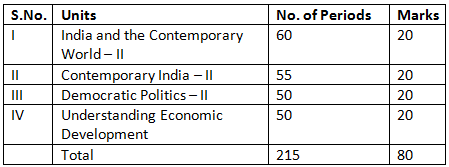 Unit-wise Syllabus
Unit-wise Syllabus
CBSE Class 10 History Syllabus 2025 - 2026: India and the Contemporary World – II
Below we have provided the History syllabus for CBSE Class 10 for your referenceSection 1: Events and Processes:
1. The Rise of Nationalism in Europe: Enable the learners to identify and comprehend the forms in which nationalism developed along with the formation of nation states in Europe in the post-1830 period. Establish the relationship and bring out the difference between European nationalism and anticolonial nationalisms. Understand the way the idea of nationalism emerged and led to the formation of nation states in Europe and elsewhere.
2. Nationalism in India: Recognize the characteristics of Indian nationalism through a case study of Non-Cooperation and Civil Disobedience Movement. Analyze the nature of the diverse social movements of the time. Familiarize with the writings and ideals of different political groups and individuals. Appreciate the ideas promoting Pan Indian belongingness.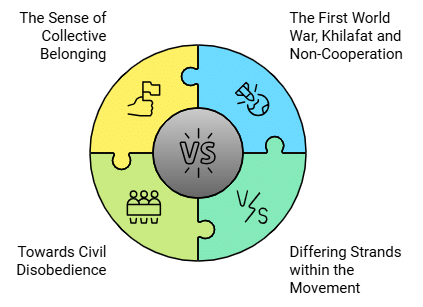
Section 2: Livelihoods, Economies and Societies:
3. The Making of a Global World: Show that globalization has a long history and point to the shifts within the process. Analyze the implication of globalization for local economies. Discuss how globalization is experienced differently by different social groups.- The Pre-modern world
- The Nineteenth Century (1815-1914)
- The Inter war Economy
- Rebuilding a World Economy: The Post-War Era
4. The Age of Industrialization: Familiarize with the Pro- toIndustrial phase and Early –factory system. Familiarize with the process of industrialization and its impact on labour class. Enable them to understand industrialization in the colonies with reference to Textile industries.
- Before the Industrial Revolution
- Hand Labour and Steam Power
- Industrialization in the Colonies
- Factories Come Up
- The Peculiarities of Industrial Growth
- Market for Goods
Section 3: Everyday Life, Culture and Politics:
5. Print Culture and the Modern World: Identify the link between print culture and the circulation of ideas. Familiarize with pictures, cartoons, extracts from propaganda literature and newspaper debates on important events and issues in the past. Understand that forms of writing have a specific history, and that they reflect historical changes within society and shape the forces of change.- The First Printed Books
- Print Comes to Europe
- The Print Revolution and its Impact
- The Reading Mania
- The Nineteenth Century
- India and the World of Print
- Religious Reform and Public Debates
- New Forms of Publication
- Print and Censorship
CBSE Class 10 Geography Syllabus 2025 - 2026 : Contemporary India – II
Below we have provided the Geography syllabus for CBSE Class 10 for your reference:
1. Resources and Development: Understand the value of resources and the need for their judicious utilization and conservation.
- Concept
- Development of Resources
- Resource Planning – Resource Planning in India, Conservation of Resources
- Land Resources
- Land Utilization
- Land Use Pattern in India
- Land Degradation and Conservation Measures
- Soil as a Resource – Classification of Soils, Soil Erosion and Soil Conservation (excluding Box Information on State of India’s Environment)
2. Forest and Wildlife: Understand the importance of forests and wild life. Understand the ability and knowledge of how forest and wildlife conservation and management relate to the economy and environment, both currently and in the future.
- Conservation of forest and wildlife in India
- Types and distribution of forests and wildlife resources
- Community and Conservation
3. Water Resources: Comprehend the importance of water as a resource as well as develop awareness towards its judicious use and conservation.
- Water Scarcity and The Need for Water Conservation and Management
- Multi-Purpose River Projects and Integrated Water Resources Management
- Rainwater Harvesting
4. Agriculture: Explain the importance of agriculture in national economy. Identify various types of farming and discuss the various farming methods; describe the spatial distribution of major crops as well as understand the relationship between rainfall regimes and cropping pattern. Explain various government policies for institutional as well as technological reforms since independence.
- Types of Farming – Primitive Subsistence, Intensive Subsistence, Commercial
- Cropping Pattern – Major Crops, Food Crops other than Grains, Non Food Crops, Technological and Institutional Reforms
- Food Security (excluding impact of globalization on agriculture)
5. Minerals and Energy Resources: Identify different types of minerals and energy resources and places of their availability. Feel the need for their judicious utilization.
- What is a mineral?
- Mode of occurrence of Minerals – Where are these minerals found?, Ferrous Minerals, Non-Ferrous Minerals, NonMetallic Minerals, Rock Minerals
- Conservation of Minerals
- Energy Resources – Conventional Sources of Energy, Non-Conventional Sources of Energy
- Conservation of Energy Resources
6. Manufacturing Industries: Bring out the importance of industries in the national economy as well as understand the regional disparities which resulted due to concentration of industries in some areas. Discuss the need for a planned industrial development and debate over the role of government towards sustainable development.
- Importance of Manufacturing – Industrial Location (excluding Industry Market Linkage), Agro based Industry (excluding Cotton Textiles, Jute Textiles, Sugar Industry), Mineral based Industries (excluding Iron Steel Industry, Cement Industry), Industrial Pollution and Environmental Degradation, Control of Environmental Degradation
7. Life Lines of National Economy: Explain the importance of transport and communication in the ever-shrinking world. Understand the role of trade and tourism in the economic development of a country.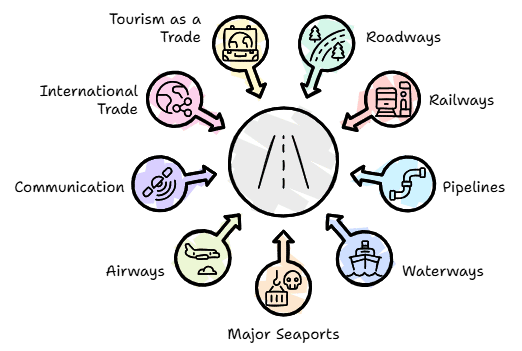
CBSE Class 10 Political Science Syllabus 2025 - 2026: Democratic Politics – II
The syllabus for Class 10 Political Science is provided below:
1. Power Sharing: Familiarize with the centrality of power sharing in a democracy. Understand the working of spatial and social power sharing mechanisms
- Belgium and Sri Lanka
- Majoritarianism in Sri Lanka
- Accommodation in Belgium
- Why power sharing is desirable?
- Forms of Power Sharing
2. Federalism: Analyze federal provisions and institutions. Explain decentralization in rural and urban areas.
- What is Federalism?
- What make India a Federal Country?
- How is Federalism practiced?
- Decentralization in India
3. Gender, Religion and Caste: Identify and analyze the challenges posed by communalism to Indian democracy. Recognize the enabling and disabling effects of caste and ethnicity in politics. Develop a gender perspective on politics.
- Gender and Politics – Public/Private division, Women’s political representation
- Religion, Communalism and Politics – Communalism, Secular State (excluding image on page 46, 48, 49 of NCERT Textbook – Democratic Politics –II – reprinted edition 2021)
- Caste and Politics – Caste inequalities, Caste in politics, Politics in caste
4. Political Parties: Analyze party systems in democracies. Introduction to major political parties, challenges faced by them and reforms in the country.
- Why do we need Political Parties? – Meaning, Functions, Necessity
- How many parties should we have?
- National Parties
- State Parties
- Challenges to Political Parties
- How can Parties be reformed?
5 . Outcomes of Democracy: Evaluate the functioning of democracies in comparison to alternative forms of governments. Understand the causes for continuation of democracy in India. Distinguish between sources of strengths and weaknesses of Indian democracy.
- How do we assess democracy’s outcomes?
- Accountable, responsive and legitimate government
- Economic growth and development
- Reduction of inequality and poverty
- Accommodation of social diversity
- Dignity and freedom of the citizens
CBSE Class 10 Economics Syllabus 2025 - 2026: Understanding Economic Development
The syllabus for Class 10 Economics is provided below:
1. Development: Familiarize with concepts of macroeconomics. Understand the rationale for overall human development in our country, which includes the rise of income, improvements in health and education rather than income. Understand the importance of quality of life and sustainable development.
- What Development Promises – Different People, Different Goals
- Income and Other Goals
- National Development
- How to compare different countries or states?
- Income and other criteria
- Public Facilities
- Sustainability of Development
2. Sectors of the Indian Economy: Identify major employment generating sectors. Reason out the government investment in different sectors of economy.
- Sectors of Economic Activities
- Comparing the three sectors
- Primary, Secondary and Tertiary Sectors in India
- Division of sectors as organized and unorganized
- Sectors in terms of ownership: Public and Private Sectors
3. Money and Credit: Understand money as an economic concept. Understand the role of financial institutions from the point of view of day-to- day life.
- Money as a medium of exchange
- Modern forms of Money
- Loan activities of Banks
- Two different Credit situations
- Terms of Credit
- Formal Sector Credit in India
- Self Help Groups for the Poor
4. Globalization and the Indian Economy: Explain the working of the Global Economic phenomenon.
- Production across countries
- Interlinking production across countries
- Foreign Trade and integration of markets
- What is Globalization?
- Factors that have enabled Globalization
- World Trade Organization
- Impact of Globalization in India
- The Struggle for a fair Globalization
5. Consumer Rights: Gets familiarized with the rights and duties as a consumer; and legal measures available to protect from being exploited in markets.
To be used only for Project Work
CBSE Class 10 Social Science Project Work Syllabus 2025 - 2026
Listed below are the important points regarding the project work syllabus
- Every student has to compulsorily undertake any one project on the following topics:
Consumer Awareness
OR
Social Issues
OR
Sustainable Development - Objective: The overall objective of the project work is to help students gain an insight and pragmatic understanding of the theme and see all the Social Science disciplines from interdisciplinary perspective. It should also help in enhancing the Life Skills of the students.
Students are expected to apply the Social Science concepts that they have learnt over the years in order to prepare the project report.
If required, students may go out for collecting data and use different primary and secondary resources to prepare the project. If possible, various forms of art may be integrated in the project work. - The distribution of marks over different aspects relating to Project Work is as follows:

- The projects carried out by the students in different topics should subsequently be shared among themselves through interactive sessions such as exhibitions, panel discussions, etc.
- All documents pertaining to assessment under this activity should be meticulously maintained by concerned schools.
- A Summary Report should be prepared highlighting:
- objectives realized through individual work and group interactions;
- calendar of activities;
- innovative ideas generated in the process;
- list of questions asked in viva voce.
- It is to be noted here by all the teachers and students that the projects and models prepared should be made from eco-friendly products without incurring too much expenditure.
- The Project Report can be handwritten/digital.
- The Project Work needs to enhance cognitive, affective, and psychomotor skills of the learners. It will include self-assessment and peer assessment, and progress of the child in project-based and inquiry-based learning, art integrated activities, experiments, models, quizzes, role plays, group work, portfolios, etc., along with teacher assessment. (NEP-2020)
(The Project work can culminate in the form of Power Point Presentation/Exhibition/Skit/albums/files/song and dance or culture show /story telling/debate/panel discussion, paper presentation and whichever is suitable to Visually Impaired Candidates.)
Records pertaining to projects (internal assessment) of the students will be maintained for a period of three months from the date of declaration of result for verification at the discretion of Board. Subjudiced cases, if any or those involving RTI / Grievances may however be retained beyond three months.
CBSE Class 10 Social Science Map Work Syllabus
A. History (Outline Political Map of India)
Chapter – 3 Nationalism in India – (1918 – 1930) for locating and labelling / Identification
- Indian National Congress Sessions:
- Calcutta (Sep. 1920)
- Nagpur (Dec. 1920)
- Madras (1927)
- Important Centres of Indian National Movement
- Champaran (Bihar) – Movement of Indigo Planters
- Kheda (Gujarat) – Peasant Satyagrah
- Ahmedabad (Gujarat) – Cotton Mill Workers Satyagraha
- Amritsar (Punjab) – Jallianwala Bagh Incident
- Chauri Chaura (U.P.) – Calling off the Non-Cooperation Movement
- Dandi (Gujarat) – Civil Disobedience Movement
B. Geography (Outline Political Map of India)
Chapter 1: Resources and Development (Identification only)
- Major soil Types
Chapter 3: Water Resources (Locating and Labelling)
Dams:
- Salal
- Bhakra Nangal
- Tehri
- Rana Pratap Sagar
- Sardar Sarovar
- Hirakud
- Nagarjuna Sagar
- Tungabhadra
Chapter 4: Agriculture (Identification only)
- Major areas of Rice and Wheat
- Largest / Major producer states of Sugarcane, Tea, Coffee, Rubber, Cotton and Jute
Chapter 5: Minerals and Energy Resources
Minerals (Identification only)
- Iron Ore mines
- Mayurbhanj
- Durg
- Bailadila
- Bellary
- Kudremukh
- Coal Mines
- Raniganj
- Bokaro
- Talcher
- Neyveli
- Oil Fields
- Digboi
- Naharkatia
- Mumbai High
- Bassien
- Kalol
- Ankaleshwar
Power Plants
(Locating and Labelling only)
- Thermal
- Namrup
- Singrauli
- Ramagundam
- Nuclear
- Narora
- Kakrapara
- Tarapur
- Kalpakkam
Chapter 6: Manufacturing Industries (Locating and Labelling Only)
Software Technology Parks:
- Noida
- Gandhinagar
- Mumbai
- Pune
- e. Hyderabad
- Bengaluru
- Chennai
- Thiruvananthapuram
Chapter 7: Lifelines of National Economy
Major Ports: (Locating and Labelling)
- Kandla
- Mumbai
- Marmagao
- New Mangalore
- Kochi
- Tuticorin
- Chennai
- Vishakhapatnam
- Paradip
- Haldia
International Airports
- Amritsar (Raja Sansi – Sri Guru Ram Dass jee)
- Delhi (Indira Gandhi)
- Mumbai (Chhatrapati Shivaji)
- Chennai (Meenam Bakkam)
- Kolkata (Netaji Subhash Chandra Bose)
- Hyderabad (Rajiv Gandhi)
Note: Items of Locating and Labelling may also be given for Identification.
Deleted Syllabus of Class 10 Social Science 2025 - 2026
Contemporary India-II
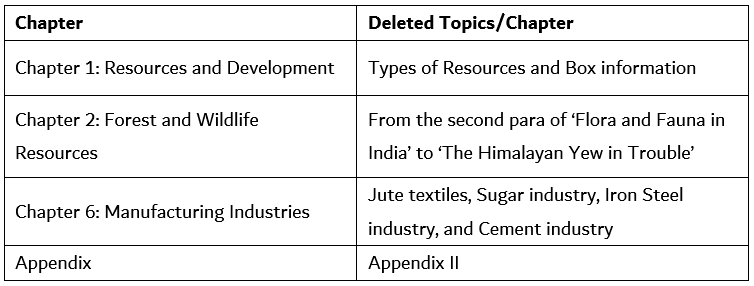
Democratic Politics-II
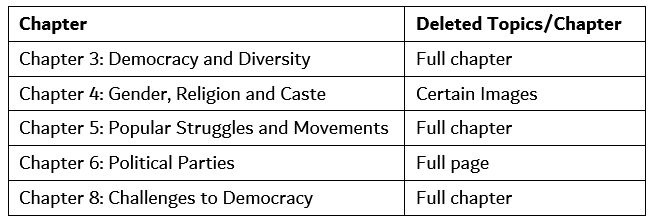
If you want guidance on how to prepare for science, do check out the document How to Prepare for Class 10 Social Science
SST Syllabus Class 10 CBSE2025 - 2026: Question paper Desig
The total theory portion of the Social science is of 80 marks and the total time allocated is 3 hours.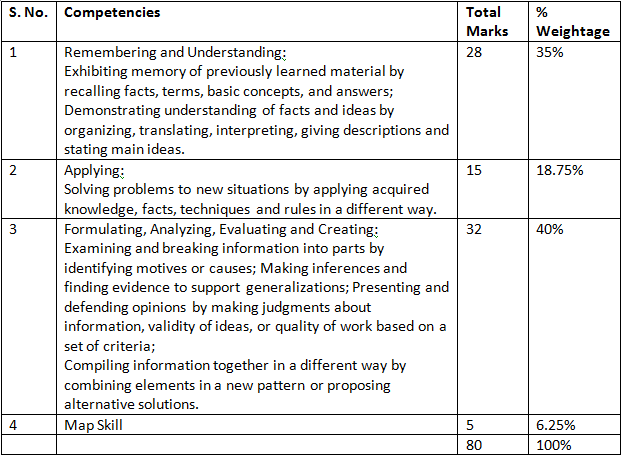
CBSE Class 10 SST Syllabus 2025 - 2026 Internal Assessment
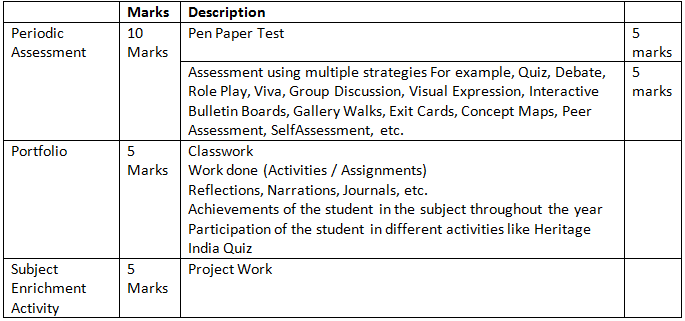
SST Class 10 Social science Syllabus 2025 - 2026: Reference Books
- India and the Contemporary World-II (History) – Published by NCERT
- Contemporary India II (Geography) – Published by NCERT
- Democratic Politics II (Political Science) – Published by NCERT
- Understanding Economic Development – Published by NCERT
Frequently Asked Questions (FAQs) on CBSE Class 10 Social Science Syllabus 2025 - 2026
How many chapters are covered in CBSE Class 10 Economics syllabus?
CBSE Class 10 Economics syllabus covers 4 chapters. These chapters are Development, Sectors of the Indian Economy, Money and Credit and Globalization and the Indian Economy.
Has CBSE reduced the syllabus of Class 10 Social Science SST in 2023 board exam?
Yes, The Syllabus Of Social Science (SST) For The upcoming 2023 Board Examination Has Been Reduced. The deleted syllabus of Social Science is provided in the document above.
How many chapters are there in Social Science Class 10?
The NCERT textbook of Class 10 consists of four different parts: History, Political Science, Economics and Geography, with the number of chapters being five, eight, five, and seven.
How many units are there for CBSE Class 10 Social Science syllabus?
The Social Science curriculum can be segregated into History, Geography, Politics, and Economics. CBSE Class 10 Social Science Syllabus 2022-23 includes units India and the Contemporary World – II, Contemporary India – II, Democratic Politics – II etc for the session 2022 – 2023.
|
8 videos|16 docs
|
FAQs on CBSE Class 10 Social Science Syllabus 2025 - 2026 - How To Prepare For Class 10
| 1. What are the main themes covered in the CBSE Class 10 History syllabus? |  |
| 2. What topics are included in the CBSE Class 10 Geography syllabus? |  |
| 3. How is the CBSE Class 10 Political Science syllabus structured? |  |
| 4. What is the focus of the CBSE Class 10 Economics syllabus? |  |
| 5. What is included in the CBSE Class 10 Social Science project work and map work syllabus? |  |

















